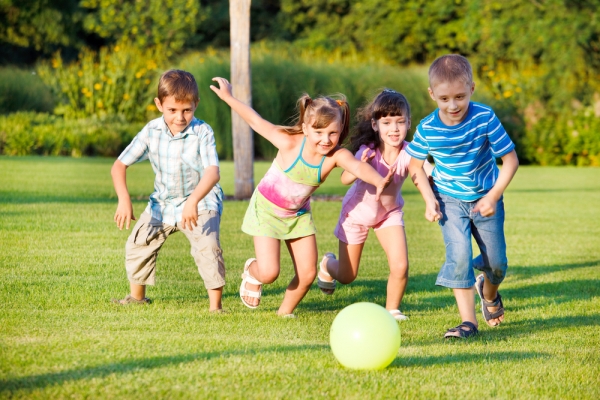It’s a fact some schools have been cutting physical education classes and other activities like recess and team sports in order to save money and allow more classroom time. However, removing physical activity from school kids’ days may actually have a detrimental effect on their scholastic abilities.
Carolyn Wassell, M.Ed. is the principal of the West Charleston Enrichment Academy (WCEA) where staying active is seen as an integral part of the school day. The long-time teacher and administrator feels physical activity has an incredibly positive impact on her students’ academic performance.
“Children have many academic periods at school where they must be cognitively focused,” she told DietsInReview. “Physical activity provides a break from concentrated instruction. Instead of going from one mental task to another, physical activity serves to relieve stress and actually lessen distractions. This allows students to return to academic tasks with increased focus and with the ability to do better on their assignments.”
A study of children who participated in a physical activity program after school supports Wassell’s statement. Students who were physically active did better on thinking tasks than their peers who did not take part in the physical activity.
It’s currently recommended that children and teens get at least 60 minutes of moderate to vigorous physical activity per day. Unfortunately, many kids fall well below that mark. The United States Report Card on Physical Activity for Children and Youth revealed that we’re getting failing grades when it comes to kids’ activity and fitness.
This new study, and others similar to it, indicates that activity doesn’t just help physical fitness, but mental fitness as well. The benefits also come from a wide variety of activities.
Wassell sees evidence of this with her students.
“Physical education is structured and organized. This activity has shown to improve physical health as well as improve attention on academic tasks,” she said.
“However, recess serves as a time for unstructured play which encourages social and emotional growth. Children develop necessary skills like cooperation and problem solving. This will carry over to the classroom.”
Exercise can also provide an unexpected outlet for kids who feel overwhelmed by school. Imagination Yoga is a kids yoga program that is tracking its own benefits, related to both health and academics. Unsurprisingly, those benefits include everything from improved academic performance to better mental health.
According to their website, “School expectations are escalated today more than in recent years though standardized tests and busy after school schedules. Yoga provides a little peace in children’s days and teaches them how to self-soothe through calming techniques.”
No matter how we approach it, it’s clear P.E., after-school sports, or really anything else that helps kids be more active is beneficial.
Action for Healthy Kids is a leading non-profit with the goal of fighting childhood obesity by helping schools become healthier places. In their report “The Learning Connection: What You Need to Know to Ensure Your Kids are Healthy and Ready to Learn,” they show the connections between physical activity and academic achievement.
According to the report, research has shown students who attend schools such as WCEA “have fewer absences, higher academic achievement and self-esteem, and are more likely to graduate from high school.” The report also supports the idea that physical activity helps to stimulate the brain, resulting in better academic performance.
With this much evidence to support it, the claim that physical activity and academic performance are linked is a hard one to dispute. What may be difficult, however, is finding a way to help kids become more active during the day.
For Wassell, the solution is simple.
“The most important way to incorporate more physical activity at home or school is to make time for it and to schedule play realizing the importance and necessity of physical activity!”
Also Read:
35 Quick and Easy School Night Dinners Your Kids Will Actually Eat
Sports Drinks: Bad for Kids’ Health and Behavior
Kids and Adults Reveal Very Different Answers When Asked What They Would Change About Their Bodies

